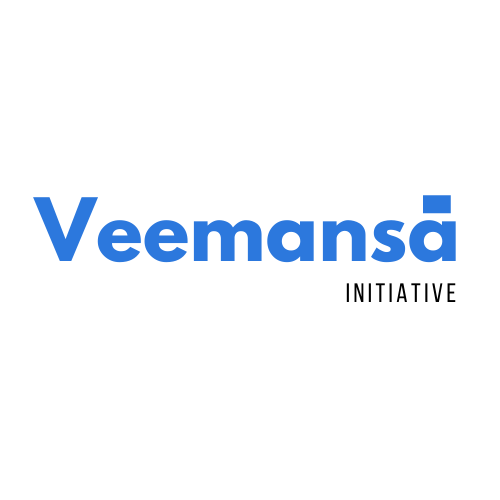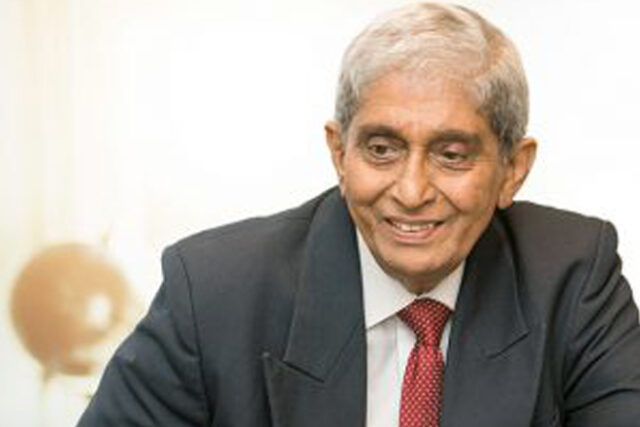
- The Central Bank Governor affirms the government’s commitment and ability to honor all debt obligations.
- Sri Lanka to mobilize domestic financing to meet countries investment requirements.
- The measures to increase foreign currency inflows and restrict outflows to continue.
- A Low-Interest regime and monetary expansion is sustainable in the prevailing conditions of suppressed demand and the absence of inflationary pressures.
- Doomsday predictions prompted by forthcoming UNHRC Session on Sri Lanka
Colombo, 28 February 2021- The inaugural webinar of the Veemansa Initiative, a newly launched policy development and advocacy think tank on the external debt situation in Sri Lanka was held on 24th Wednesday, February 2021. It highlighted several challenges facing the country’s economy and concluded with valuable policy responses from expert panelists and participants.
Delivering the keynote address on the topic, External Debt Situation in Sri Lanka: Our Route to Resolution, the Governor of the Central Bank, Deshamanya Professor W D Lakshman said that despite the COVID-19 pandemic and its impact Sri Lanka will maintain its unblemished records of debt service. The following are the key point of the Governor’s speech.

“COVID-19 pandemic and its wide-ranging impacts have compelled the country to rethink its economic strategies. In the past, we borrowed from multilateral agencies, initially on concessional terms, and over time, our foreign debt had increased slowly but steadily. While graduating to the middle-income country status, Sri Lanka has become less eligible for concessionary funding and had to move increasingly into commercial borrowing to finance its investments as well as to meet its consumer imports and debt servicing obligations,”
“The Government has decided that reliance on foreign borrowings, particularly commercial borrowings, should be phased out gradually to reduce the burden of debt service. The Government is of the view that the country’s development projects should be as far as possible domestically oriented, both in terms of the implementing parties involved and the funding sources, wherever possible. The medium-term objective is to reduce the foreign to domestic ratio in Sri Lanka’s public debt to 33:67 from the current level of 43:57. Although this could have been done during the 2nd half of the last decade, the foreign debt volume has increased from $ 24.6 billion in 2015 to $ 34.7 billion in 2020.
“This will no doubt require some austerity in terms of mostly cutting down of import of non-essential consumer goods and enhancing all forms of foreign currency inflows. Due to these measures, the current account deficit of the balance of payments (BOP) in 2020 is estimated to have reduced to $ 1 billion compared to $ 1.8 billion in 2019. This tendency will strengthen further in 2021 and the target is to achieve a surplus in the current account in 2021. These inflows to the current account will be complemented with FDI on the Capital Account. The Colombo Port City and Hambantota Industrial Zone are expected to be major contributors of FDIs.
“The necessity of adopting such policies have become very important in the current conditions in the global financial markets after the outbreak of Covid19 pandemic. Particularly for Sri Lanka, the prospects of external financing have been constrained by risk aversion and volatility in global financial markets,”
“While stability in the price level, the rate of interest rate and rate of exchange to a politically stable and economically feasible level is desirable when conflicts emerge on these objectives, required trade-offs have to be worked out. The production in the Sri Lankan economy remains below the potential and demand-led inflation pressures remain weak in the aftermath of the pandemic. There are possibilities for monetary expansion within reasonable limits to meet the government’s expenditure to meet COVID-29 related social protection needs as well as capital expenditure. The limits here are dictated by domestic inflation and changing external reserve position. The empirical research carried out in a number of countries including Sri Lank has failed to establish a direct relationship between changes in money supply and price level.
“Despite these challenges, and adverse predictions by many parties who projected doomsday scenarios, the Central Bank of Sri Lanka affirms to all foreign stakeholders, that Sri Lanka remains committed to meet its debt obligations, as it has done impeccably in the past and it has the ability to so in the future. Of around US dollars 3.7 billion to repay in external debt in 2021, we have already paid a considerable chunk in the first two months of the year.” the Governor said.
The Governor also indicated that gloom and doom predictions are seemed to have coincided with the UN Human Rights Council Sessions where a resolution is moved against Sri Lanka by a group of western countries. The governor has outlined a number of measures that the government and the Central bank has undertaken to increase non-debt creating foreign currency reserves.
The keynote speech of the governor followed by a discussion among an eminent panel of experts chaired by Prof. Sirimal Abeyratne – Head of Department of Economics, University of Colombo. Mr. Sumanasiri Liyanage – Senior Academic, Formally of the University of Peradeniya and Sanasa Campus, Dr. Nishan de Mel-Head of Verite Research, a renowned think tank, and Dr. Ravi Liyanage Chairman Raigama Group, participated in the panel discussion.
The experts also discussed the need to create a conducive environment for investment through tax reforms as well as legislative reforms, thereby making Sri Lanka a destination of promise for investment, domestic and foreign alike. The panelists agreed that maintaining the interest rates low is conducive to post COVID -19 economic recovery. In this context, a panelist suggested a more gradual and phased approach to the transition from external financing of government debt to predominantly domestic financing.
Over 150 participants from Australia, China, India, Philippines, US, etc. joined online sharing experiences on a range of issues that included import substitution, fiscal gap, the debt obligation for this year, non-debt creating financial measures, that the focus of the government in the short and medium-term.
Veemansa initiative has made provisions to make available the recorded session on its website. https://veemansa.org. .
Follow on social media: https://www.facebook.com/Veemansa-101970975254803
Call: Mr. Luxman Siriwardena, Managing Director, Veemansa Initiative, via 0773660520



